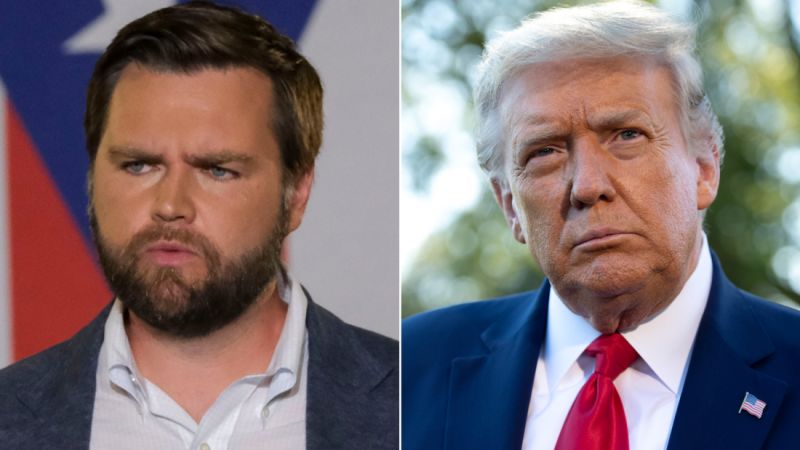Vance defends Trump’s tweet by stating that he believes people have the right to express their opinions, even if others find them offensive. He clarifies that he does not agree with everything Trump says or does, but he does support the former president’s right to free speech. Vance also criticizes the media for their coverage of Trump’s tweet, accusing them of taking his words out of context and trying to smear his character. He argues that the focus should be on policy issues, rather than on inflammatory comments made on social media.
Bash challenges Vance on his defense of Trump’s tweet, pointing out that many people found the comment to be anti-Semitic and offensive. Vance responds by insisting that he does not believe Trump intended to be anti-Semitic, and that it is unfair to label him as such based on one tweet. He also argues that Trump has been a strong supporter of Israel and the Jewish community, and that his tweet was meant to highlight the political choices made by some members of the Jewish community, rather than to shame them based on their religion.
Vance acknowledges that Trump’s tweet was “inartful,” but he stands by his belief that people should not be silenced or shamed for expressing unpopular opinions. He emphasizes the importance of free speech and open dialogue in a democracy, even if it means confronting uncomfortable or controversial viewpoints. Vance argues that the focus should be on engaging with differing perspectives and finding common ground, rather than trying to silence or shame those who hold different opinions.
Bash continues to press Vance on his defense of Trump’s tweet, questioning whether he believes it is appropriate for a public figure to use social media to shame and divide members of the community based on their political beliefs. Vance reiterates his support for free speech and individual expression, and emphasizes that his goal is to foster a more open and inclusive political conversation. He acknowledges that Trump’s tweet may have been divisive, but he believes it is important to address the underlying policy issues that led to such polarization in the public discourse.
Vance concludes by reiterating his support for Trump’s right to free speech, while also acknowledging that the former president’s tweets can sometimes be inflammatory or divisive. He encourages others to engage in respectful and constructive dialogue, even when faced with differing opinions or controversial statements. Vance believes that a healthy democracy depends on open and honest communication, and that it is important to listen to and learn from perspectives that may challenge our own beliefs. He remains committed to promoting civil discourse and finding common ground in the midst of political disagreements.
In summary, Vance defends Trump’s controversial tweet shaming Jews who voted for Biden, arguing that people should have the right to express their opinions even if they are offensive. He criticizes the media for sensationalizing the tweet and believes the focus should be on policy issues rather than inflammatory remarks. Vance emphasizes the importance of free speech and open dialogue in a democracy, even when faced with uncomfortable or controversial viewpoints. He encourages respectful and constructive engagement with differing perspectives to foster a more inclusive political conversation.


